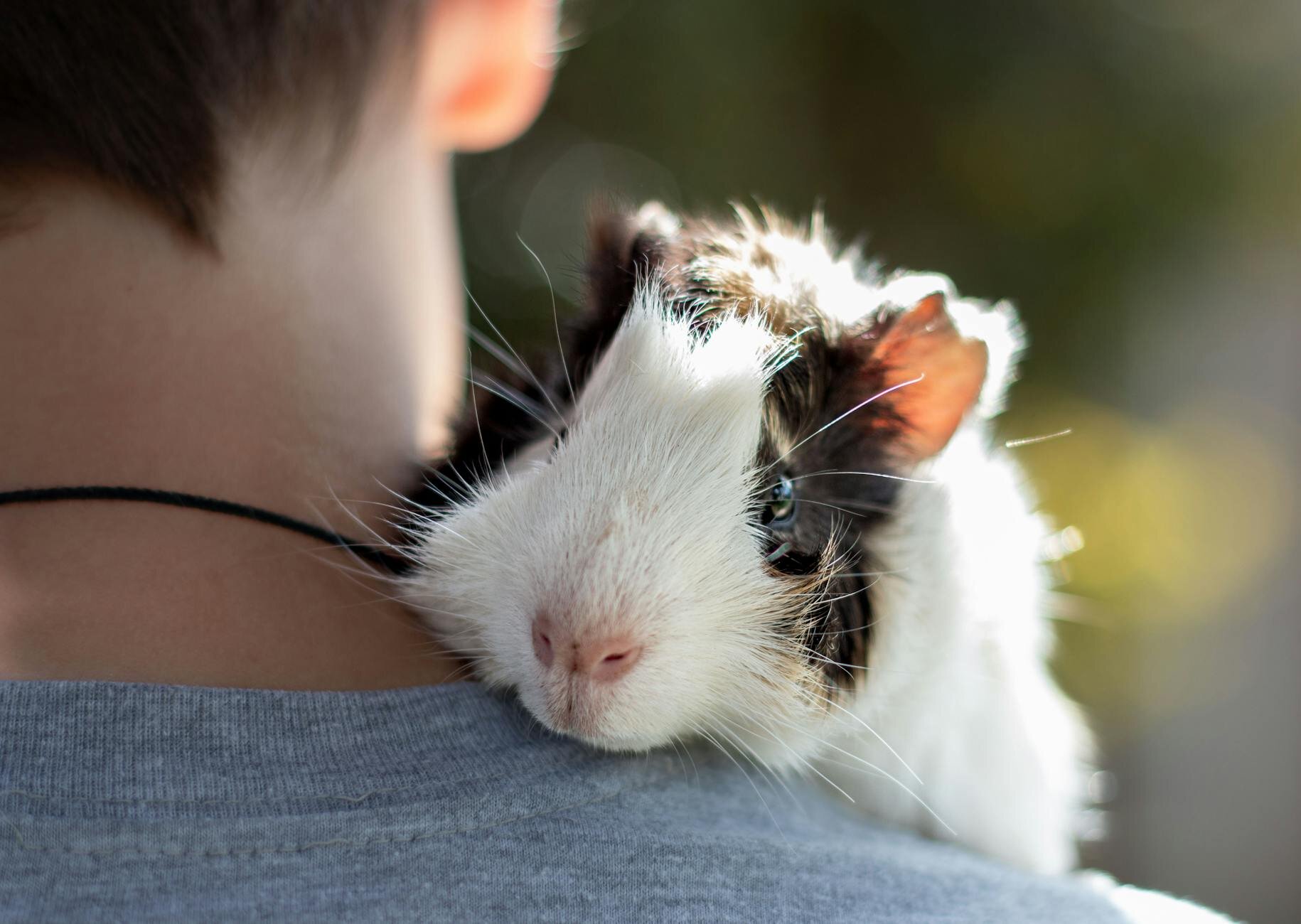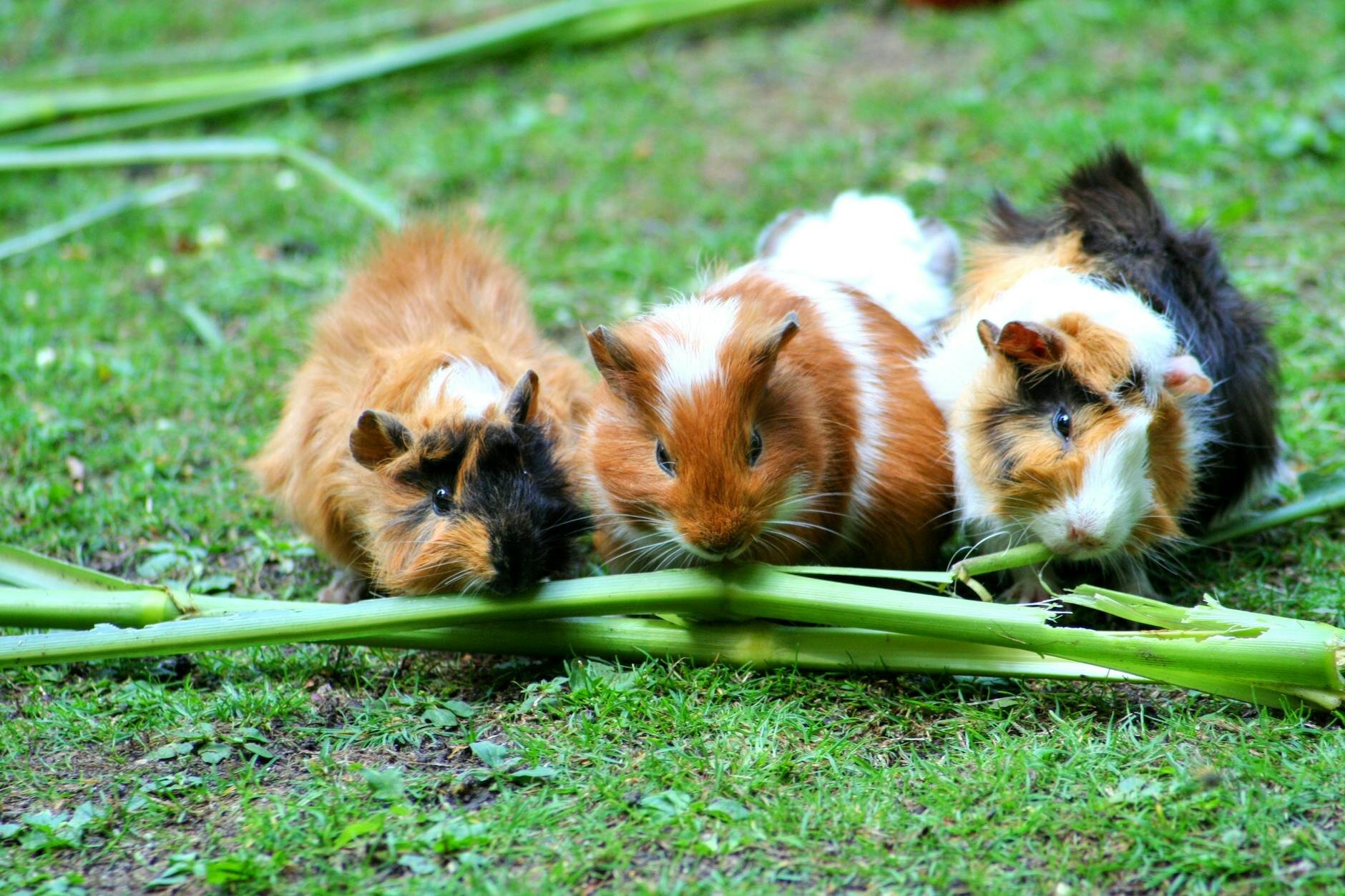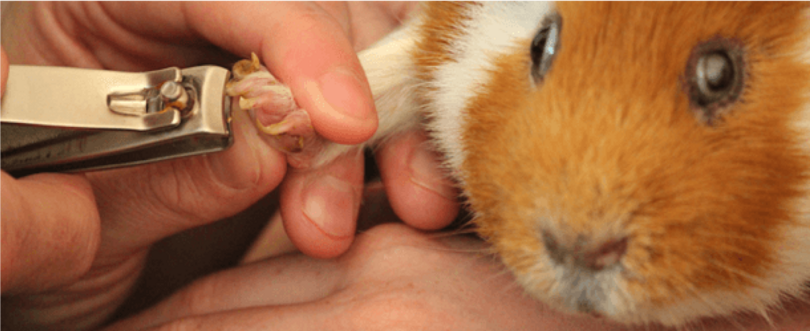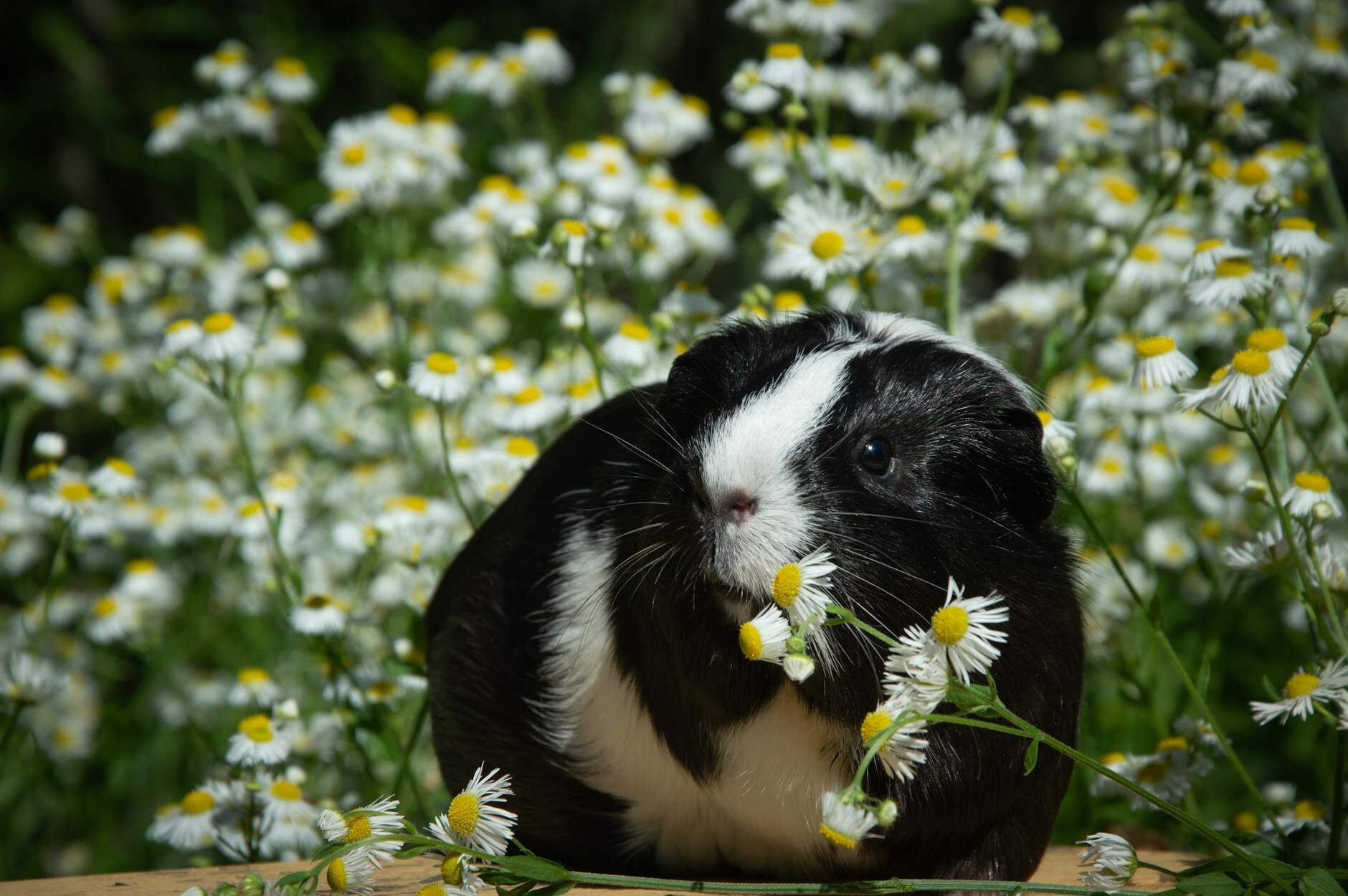A guinea pig diet should be set out as follows:
- A strong base of Grass and/or grass hay as the majority of the diet
- Fresh leafy green vegetables and herbs daily
- A dietary source of vitamin C
- Commercial mixture of high-quality pellets in moderation
- Access to fresh water at all times.
For the grass / grass hay portion, a constant supply should be provided. Cavies particularly love fresh grass, which makes them handy lawn mowers! They are hindgut fermentors, which means they need to be almost constantly eating. Species of grass that are suitable include Timothy, Wheaten, Oaten, Pasture, Paddock, Ryegrass, or Meadow. Lucerne (alfalfa) is ok for pregnant or juvenile guinea pigs, but is a little too high in calcium for adult piggies - so it's best to avoid in these guys.
Fresh leafy green vegetables and herbs that are great for guinea pigs include cabbage, celery, broccoli, carrot tops, dandelion, parsley, dark leaf lettuce, asian greens, coriander, basil, and dill. Approximately one cup per day is ideal for one adult piggie.
For Vitamin C, you can provide a Vitamin C supplement, or provide a natural source such as citrus fruits, capsicum, strawberries, or kiwi fruit.
Pellets are a great way to give your cavy some extra nutrition in addition to grass and veggies. Always go for a high quality pellet such as those made by Vetafarm, Peter's or Peckish.
In terms of fresh water, it is ideal to have a heavy water bowl (such as one made of ceramic) as guinea pigs can be a little messy and tip over their bowl. For this reason, it is also handy to have an upright bottle as a backup.





